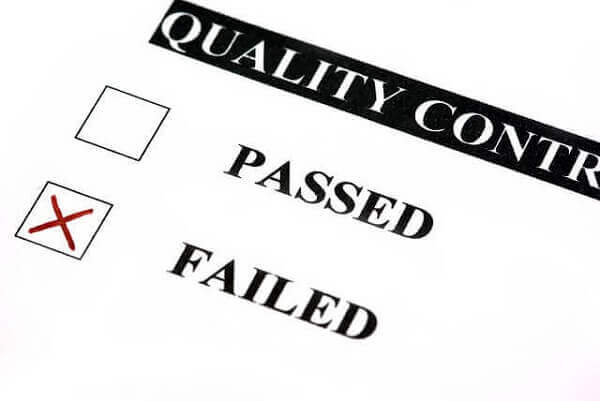
We spend thousands of dollars each year on insurance, home security, and even smart home technology. All of these are supposed to protect us, keep our belongings and loved ones safe, and make life easier.
One danger that you might not be aware of, which lurks despite the money spent, is still in your home. More accidents happen inside the home each year than they do on the outside, and often these are caused by the products inside of the house.
Before risking injury to you and your loved ones, consider the potential risks inside your home and see what you can do to reduce the dangers from the inside out. Some of these dangerous products cannot be avoided, but the risk of injury can be minimized when you store them correctly and use them per their instructions.
What Are the Most Dangerous Household Products Lurking in Seattle Homes Today?
Some of these products might surprise you and others might not. Regardless, being aware of the products that are potential hazards in your home can help you protect everyone inside.
Laundry Detergent
The American Association of Poison Control Centers states that there were 12,000 calls about ingestions of Tide Pods in 2017. It is not just teenagers consuming them as part of the ridiculous Tide Pod Challenge either. In 2018, the first two months report over 1,000 incidents of children, under the age of five, consumed these products.
Laundry detergent pods are high concentrations of detergent that can result in gastrointestinal injuries, respiratory failure, eye injuries, and death.
If you use laundry pods, store them high and out of the reach of small children. Talk to your teens about the Tide Pod Challenge and why it is not okay to participate. Also, use the locking container provided by the manufacturer. This will further keep small children from opening them and trying to eat them.
Stools and Ladders
You need them to reach high into the cabinets or perhaps to hang your Christmas lights. But ladders and stools cause injuries each year as well.
Straight ladders, stepladders, and step-stools pose a fall hazard for all ages, mainly when misused. Always use caution while on a ladder, never stand on the top step of one, and have a spotter just in case the ladder slips.
Hair Dryers
Hair dryers are a must-have for most households, but they are not always as safe as you think. Hair dryers increase your risk of electrical shocks, burns, and household fires. Use your hair dryer properly, never stand in water while using one, and always discard if you smell anything burning or notice frayed wires.
Space Heaters
When your home’s current HVAC cannot supply proper heat, you supplement with a space heater. While it is true that the space heaters today are safer than they were a few years ago, they are still a fire hazard and burn hazard. The National Fire Protection Agency states that 79 percent of fire fatalities were due to space heater use.
If you must use a space heater, be cautious about where you plug it in and be sure that small children or pets cannot touch it. Likewise, inspect it regularly for signs of wear and tear. Never use a gas-powered space heater indoors either, because this increases the likelihood of carbon monoxide poisoning.
Garden Tools
When you think of dangerous gardening, you assume a lawn-mower would be the highest on the list – but you are wrong. Instead, the U.S. Consumer Product Safety Commission states that there is an average of 83 deaths each year by gardening tools other than lawn-mowers.
Men are more likely than women to be injured, and one of the more common injuries is to the hands.
Power Tools
Power tool injuries are incredibly common in the U.S. In fact, Forbes created a list of the most dangerous power tools in the industry and how they cause these serious injuries. While you need them in your garage or tool shed for projects around the house, make sure you are storing them where children cannot reach them and that you are only using them as instructed.
Sprayable Air Freshener
You want your home to smell fresh and clean, even if you haven’t cleaned in a while. Those aerosol air fresheners promise to remove the scents and make your home smell great. The only catch is that they are a source of volatile organic compounds (VOCs), according to the American College of Allergy, Asthma, and Immunology. If you suffer from even slight allergies, you might notice they act up more every time you spray a new scent.
Bleach
Bleach is the ultimate cleaner. It sanitizes your bathrooms, whitens your laundry, and helps remove mold. Bleach ingestion can lead to severe and life-threatening scarring and burning, and just using these products may lead to pulmonary disease. If you are going to use bleach, wear a mask while doing so and make sure to wear gloves too so that residual bleach does not leach through your skin.
Candles
Candles are romantic and help set the ambiance for a nice relaxing night. They are also dangerous. According to the National Fire Protection Association, candles caused 2 percent of reported house fires, 3 percent of fire deaths, and 7 percent of fire injuries between 2012 and 2016.
Falling asleep while leaving a candle burning was one of the leading reasons for household fires and contributed to 21 percent of fire-related deaths.
December is a peak time for candle usage, and 12 percent of fires start with candle decorations during December alone.
If you want the ambiance of candles, use the LED kind. Today’s technology allows them have a flickering wick, so they resemble a real candle without the danger.
Injured by a Defective Product? You Have Rights
If you are injured by a defective product (whether a household fire, poisoning, or another injury), you may be entitled to compensation. Manufacturers, distributors, and retailers are required to ensure the products they sell to customers are safe. When these defects lead to severe injuries, they are legally responsible to make victims financially whole once again.
To explore your rights, speak with an attorney now at Brett McCandlis Brown & Conner, PLLC. We are here to serve as your legal advocates, and we will not rest until you receive the compensation you deserve after a catastrophic product-related injury.
Call to schedule a free case evaluation or contact us online with your questions.


